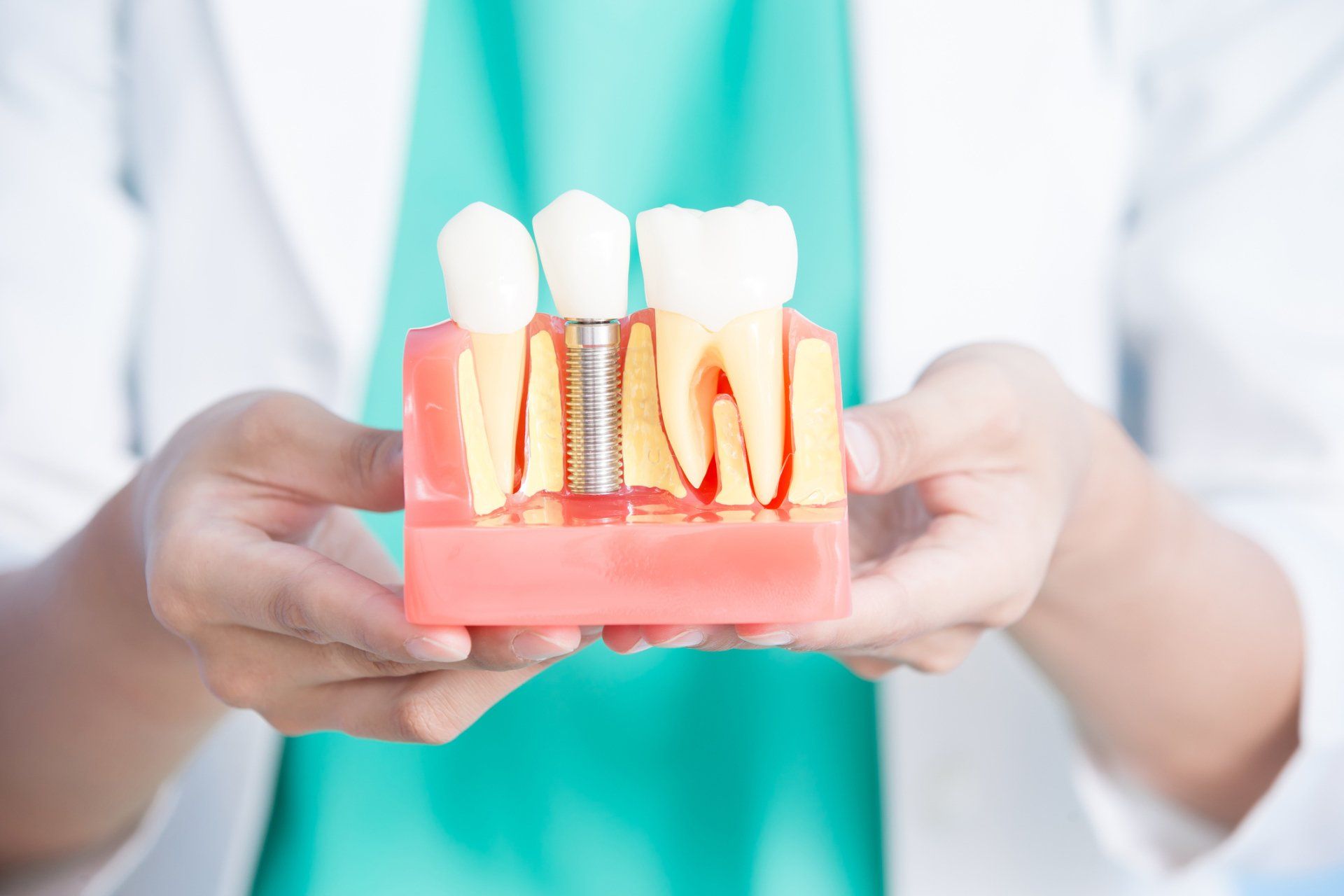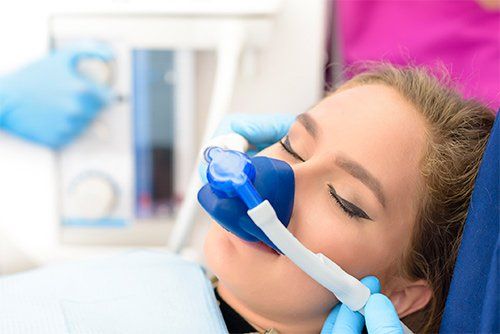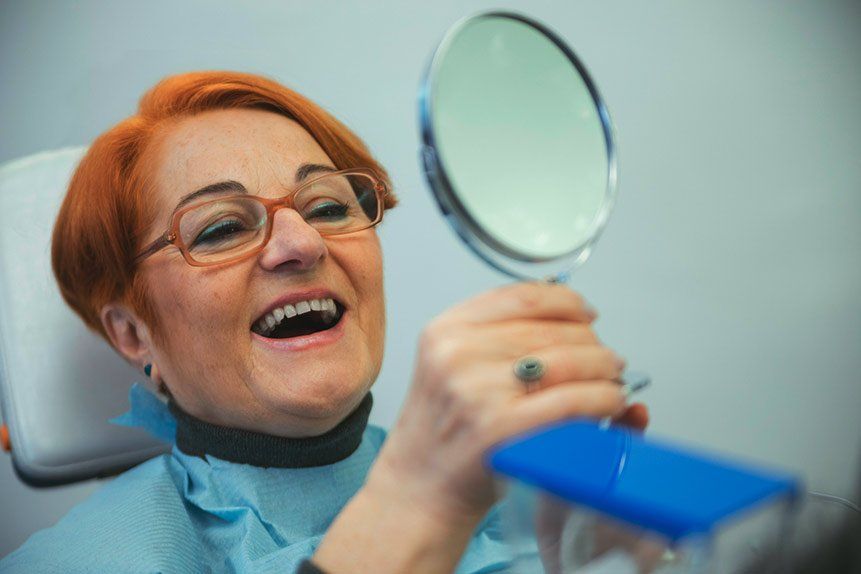Oral Care With Dentures, Dementia, and Alzheimer's Disease
- By Admin
- •
- 18 Oct, 2019
- •

Alzheimer's disease affects an estimated 5.8 million Americans according to the Alzheimer's Association. If your loved one has this type of dementia and wears dentures, take a look at what you need to know about these dental devices, mouth care, and overall health.
Dentures Can Help Dementia
Why should your loved one wear dentures? If they have missing teeth, dentures can help on many different levels. Not only can dentures add to the wearer's overall aesthetic appearance, but they can also help to ensure proper nutrition. Without the ability to eat effectively, it's challenging (at best) for an Alzheimer's patient to maintain their physical health.
Beyond the ability to eat, some studies have shown that dentures can help to improve brain function. A study published in the Japanese Dental Science Review looked at brain wave activity (via EEGs) of denture wearers.
The researchers found that complete and partial dentures helped to improve functional brain activity and, in the elderly, helped to reduce the risk of brain activity deterioration.
Dentures Require Daily Care
Proper dental care is an easy way for most people to stop the spread of decay, reduce the risks of gum disease, and maintain a healthy mouth. Alzheimer's patients may have difficulty with oral care - especially when it comes to remembering to clean and care for their dentures.
Along with the inability to remember when to clean their teeth or dentures, people with dementia may also struggle to use dental cleaning products. Some Alzheimer's patients in the middle and late stages of the disease may not remember how to brush their teeth, soak their dentures, or rinse. They may also experience agitation or resist help with denture cleaning and other dental activities.
How can you help someone in this situation? Simple steps to improve denture care in dementia or Alzheimer's patients include:
- Talk to the professional. The dentist or your loved one's medical provider may have expertlevel suggestions to help with memory impairment and denture care.
- Use brief instructions. Forget about lengthy lists. Make instructions simple and brief. Easyto-follow directions can break down the steps into small chunks of activity and reduce the difficulty your loved one has understanding or remembering.
- Act as a role model. Even if you don't have dentures, you can role model some cleaning behaviors. Demonstrate cleaning techniques first, and let your loved one follow.
Along with daily care, denture wearers also need professional care several times a year. The specific number of dentist's office visits your loved one needs depends on their individual needs. Consult with the dentist and the denture wearer's doctor or memory specialist before you make an appointment or check-up schedule.
Dentures Can Require Extra Help
Can your loved one maintain most of their regular hygiene practices themselves? Whether they require some help with everything from bathing to dressing or are fairly independent, dentures add an extra level of need.
Caregivers, both family caregivers and hired medical at-home staff, can assist with denture care help and:
- Keep a check list. Maintain a check list of daily denture care activities. If your loved one forgets to brush or clean their device, the list will alert you to an issue.
- Encourage proper care. You won't always need to take over and do the work for your loved one. A caregiver should encourage the Alzheimer's patient to clean their own dental devices (when appropriate).
- Replace lost dentures. As the disease progresses, memory loss can also result in denture loss. If your loved one loses their dentures, you (or another caregiver) can help them to get a speedy replacement.
- Make dental appointments. Your loved one may have difficulty making or keeping dental appointments. Talk to the dentist about a schedule, set up appointments, and make sure the patient has transportation.
Along with these assistance activities, keep track of what dental and denture cleaning products your loved one has and needs.
Does your parent, grandparent, or other family member with Alzheimer's disease need dentures? Contact Premier Dentures & Implants for more information.











